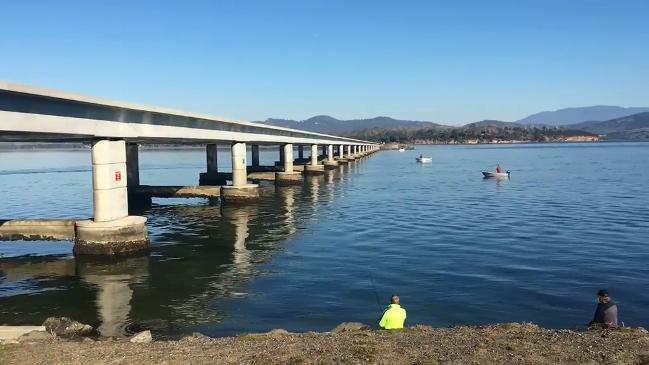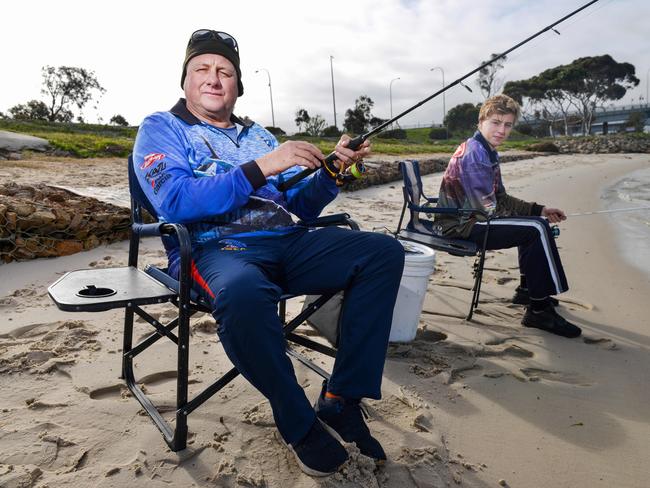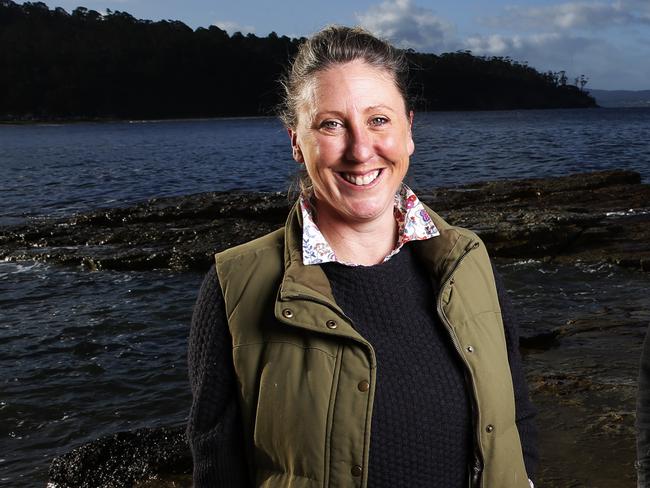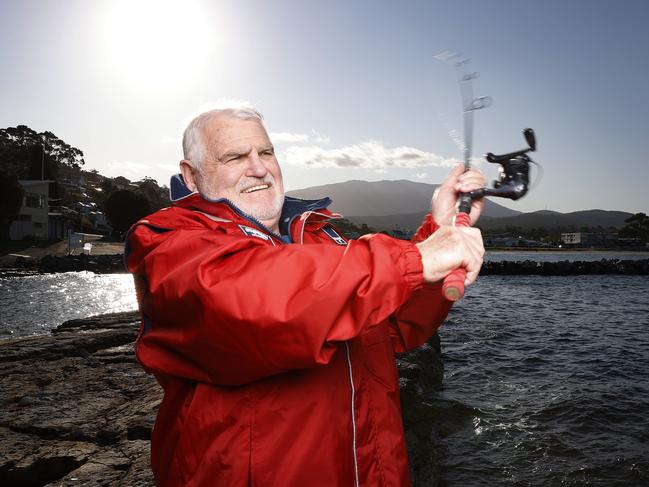The peak body representing recreational fishing in Tasmania is pushing for a peace deal with the commercial sector
Anglers are being urged to have “hard conversations” about recreational fishing as the government pursues a 10-year strategy for the popular pastime.

Tasmania
Don't miss out on the headlines from Tasmania. Followed categories will be added to My News.
PROFESSIONAL anglers say the creation of the state’s first recreational sea fishing strategy needs to be more than “just a commercial seafood bashing exercise”.
Tasmania’s huge recreational fishing community is being urged to get vocal as the state government develops a 10-year strategy to ensure the long-term future of the pastime.
Almost one in four Tasmanians aged over five take part in fishing, according to the most recent survey, and Primary Industries Minister Guy Barnett said the aim of the new strategy was to “strike the right balance” between access for today and ensuring fish for future generations.
Public meetings are being held around the state and public submissions can be made online until October 25.

While many anglers are deeply passionate about their hobby, Tasmanian Association for Recreational Fishing (TARFish) chief Jane Gallichan said they were not always keen to get involved in policy making.
“It is vitally important that we take this opportunity to have hard conversations about everything from sea fishing licences to catch share arrangements,” Ms Gallichan said.
She said it was time for the recreational and commercial sectors to “get around the table” with the government, to nut out a peace deal, as happened with forestry under the previous Labor government.
“Let’s all get around the table to see where we can find some workable solutions and some common ground,” Ms Gallichan said.

Julian Harrington from the Seafood Industry Council agreed.
“We need to sit down and find a reasonable balance,” Mr Harrington said.
“We support the recreational fishing strategy, but it’s vital to acknowledge the importance of the commercial sector. We employ a lot of people and so many more are employed indirectly and, while a lot of product is exported, that money plays a big role in regional communities.”
Ms Gallichan said there was division among recreational fishers about the concept of a rod and line licence, with some believing it would empower non-professional anglers to have a greater say on fisheries management and even to potentially “buy back commercial quota for key species”.
“On the other side of that, there’s a large proportion of recreational fishers who say ‘I pay my taxes, I pay my boat licence and you don’t charge people to use a playground’,” Ms Gallichan said.
“We need to hear from fishers and then the TARFish board will take a position.”

Kerry Bradley, of Kingston Beach, has been fishing since he was a child on his dad’s rock lobster boat.
Now 71, he has been urging the Kingborough Council to install a ladder alongside the local jetty to make it easier for older boat users to go fishing, and he would also like to see better markers for no-fishing zones, for those without GPS units.
“What they really need is marker buoys and markers on the shore, so it distinctly shows where the marine reserves are,” Mr Bradley said.
Ms Gallichan said it was hard to name an activity that was more important to the Tasmanian way of life, but said better toilet facilities, walking tracks and playgrounds would encourage more women and children to take part.
Book in for an information session or make a public submission at www.fishing.tas.gov.au/rec-strategy
Originally published as The peak body representing recreational fishing in Tasmania is pushing for a peace deal with the commercial sector
